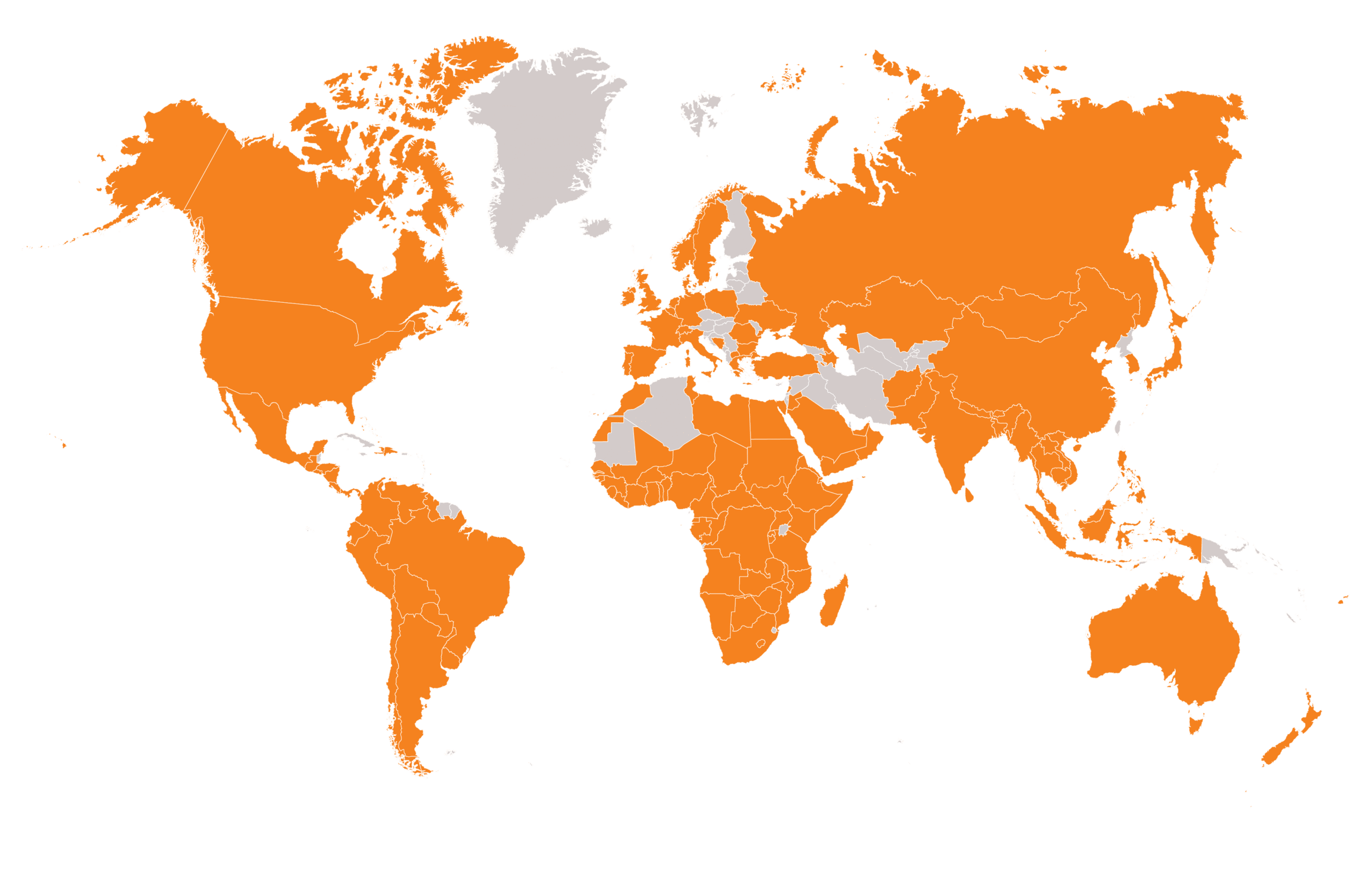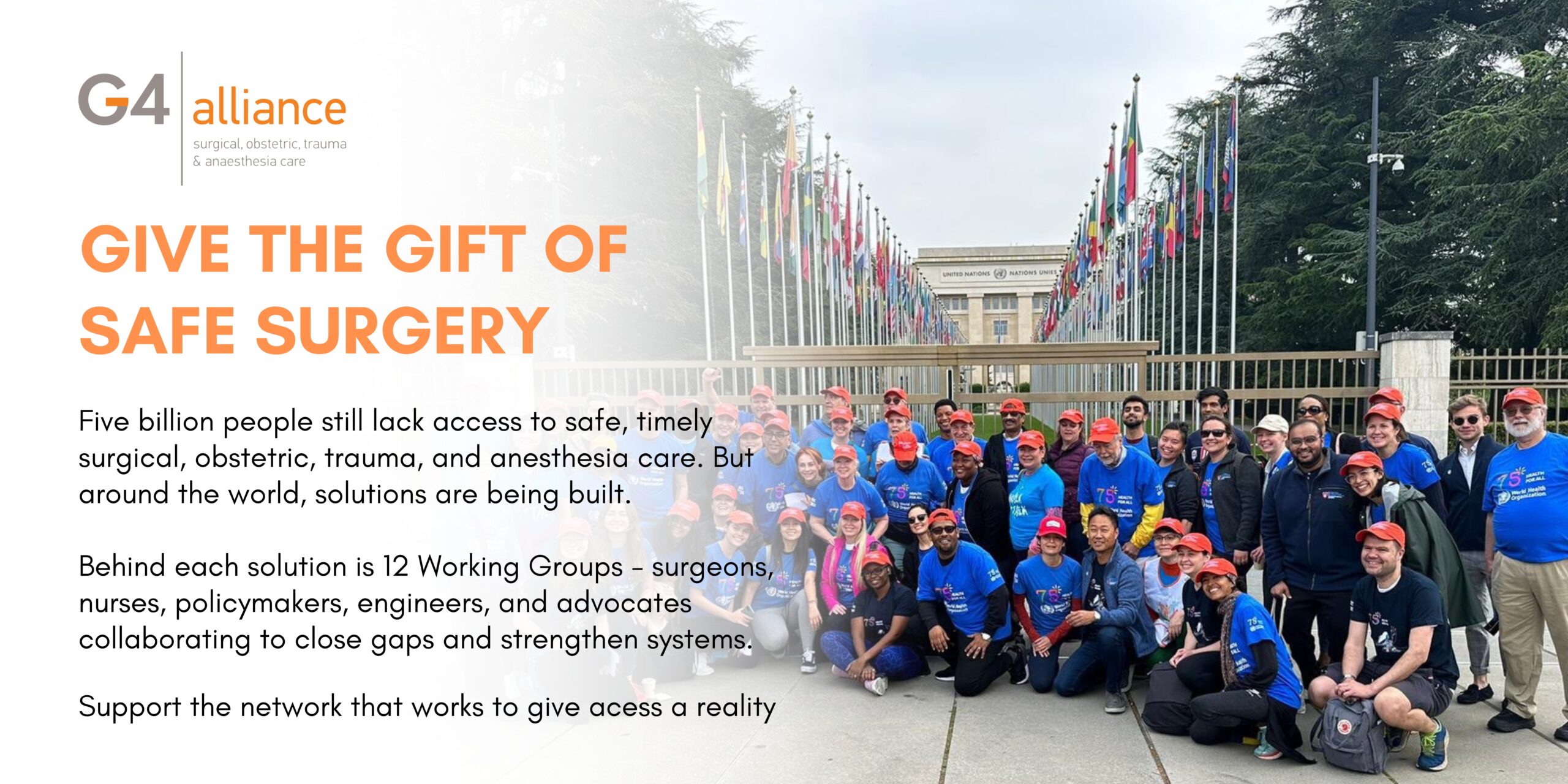10 Years of Advocacy – A Future of Promise
From advocacy to innovation, discover how we’re transforming surgical care worldwide.

Our Working Groups: Innovation in Action
These are a highlight of some of our specialized working groups leading policy, research, knowledge exchange, and development of technical resources for SOTA care.
Burns Working Group
Launched World Burns Week in 95 countries. Created the Burns Care Map for global access to treatment.
Latin America & Caribbean Working Group
Monthly Spanish/English webinars uniting regional leaders. Led advocacy to influence WHO health policy in the Americas.
ISGQSSA Working Group
Published the first global surgical care standards for LMICs. Influencing decentralized, quality-first surgical systems.
Operative Encounter Registry (OER) Working Group
Developed the WHO Operative Encounter Module. Driving data-powered improvements in surgical care access.
US Government Resource Mobilization Working Group
Led successful advocacy to include surgical care in USAID appropriations language — a first in U.S. history. Mobilized 16 U.S. surgical societies to support funding for surgical system strengthening.
Asia Working Group
Published peer-reviewed articles on SOTA priorities and workforce case studies across Asian LMICs. Collaborated with ASAR and Nivarana to amplify grassroots stories of neglected surgical patients and providers.
Heat map of members

United States - 19
Canada: 6
Mexico: 5
Panama: 3
Guatemala: 3
Honduras: 3
Haiti: 3
Dominica: 3
Dominican Republic: 3
Bahamas: 1
Barbados: 1
Costa Rica: 1
El Salvador: 1
Grenada: 1
Ecuador: 9
Brazil: 8
Colombia: 6
Paraguay: 6
Peru: 6
Bolivia: 5
Venezuela: 3
Argentina: 2
Chile: 2
Uruguay: 1
Guyana: 1
Switzerland — 6
Ireland — 5
United Kingdom — 5
Netherlands — 3
Norway — 3
Sweden — 3
Belgium — 3
Germany — 3
France — 2
Italy — 2
Portugal — 2
Russian Federation — 2
Azerbaijan — 1
Bosnia and Herzegovina — 1
Denmark — 1
Greece — 1
Luxembourg — 1
North Macedonia — 1
Poland — 1
Romania — 1
United Arab Emirates — 2
Jordan — 2
Bahrain — 1
Lebanon — 1
Oman — 1
Saudi Arabia — 1
Yemen — 1
Egypt — 5
Morocco — 4
Sudan — 4
Libya — 1
Tunisia — 1
Ghana — 11
Sierra Leone — 9
Liberia — 8
Niger — 8
Nigeria — 8
Gambia — 7
Benin — 4
Côte d'Ivoire — 4
Guinea-Bissau — 4
Burkina Faso — 3
Guinea — 3
Mauritania — 3
Senegal — 3
Togo — 3
Cabo Verde — 2
Mali — 6
Tanzania — 13
Uganda — 11
Ethiopia — 10
Kenya — 9
Rwanda — 8
Madagascar — 5
Somalia — 3
Burundi — 3
Djibouti — 2
Eritrea — 1
Cameroon — 6
Congo — 6
Democratic Republic of the Congo — 6
Chad — 3
Central African Republic — 2
Equatorial Guinea — 2
Gabon — 3
South Africa — 7
Zambia — 7
Malawi — 8
Mozambique — 6
Zimbabwe — 5
Angola — 2
Namibia — 3
Botswana — 1
Lesotho — 1
India — 7
Pakistan — 8
Bangladesh — 5
Nepal — 4
Sri Lanka — 3
Bhutan — 2
Afghanistan — 2
Thailand — 6
Myanmar — 5
Viet Nam — 5
Philippines — 5
Cambodia — 4
Malaysia — 3
Indonesia — 3
Lao People's Democratic Republic — 2
Singapore — 1
Fiji — 4
Australia — 3
New Zealand — 1
China — 3
Japan — 1
Republic of Korea — 1
Mongolia — 1
Russian Federation — 2
Kazakhstan — 1
Headquarters
-
1050 Connecticut Ave NW Suite 500
Washington, DC 20036 USA


